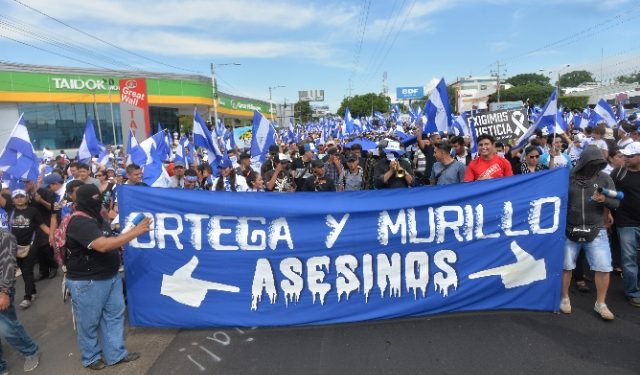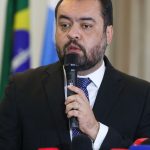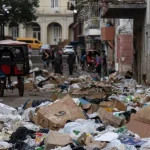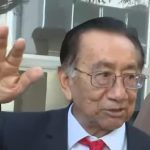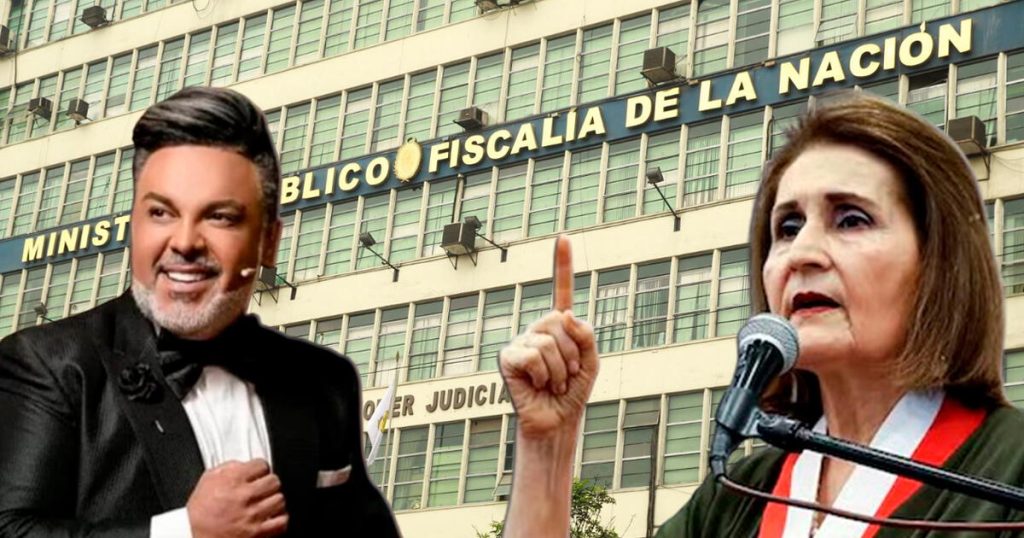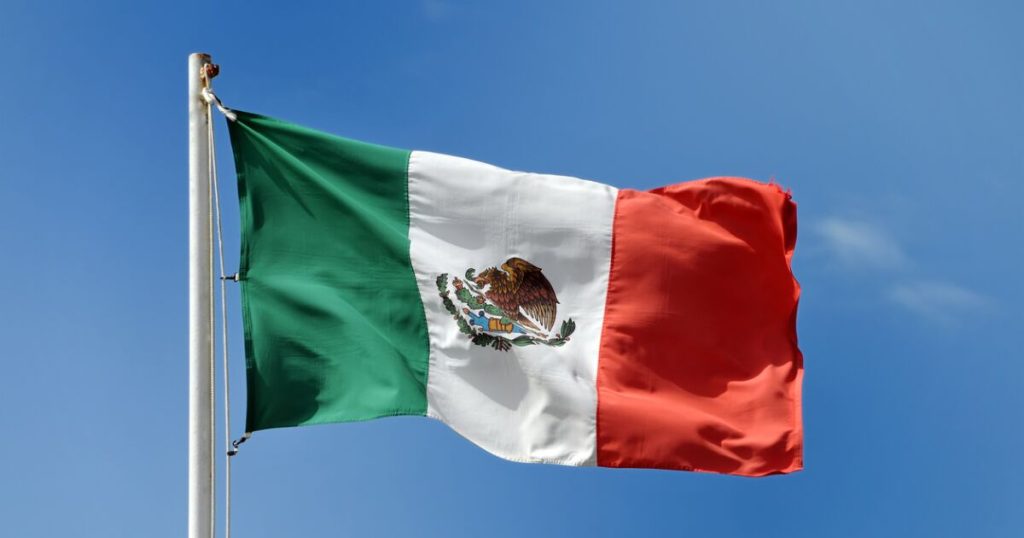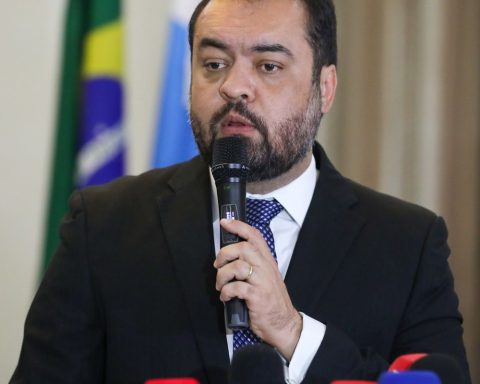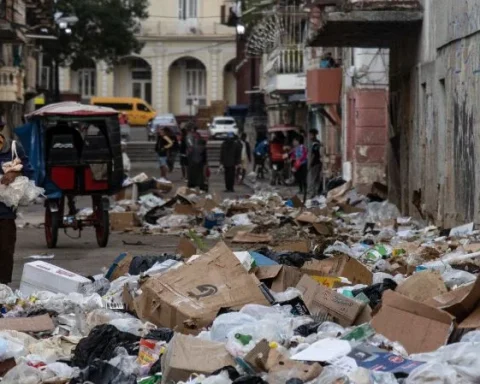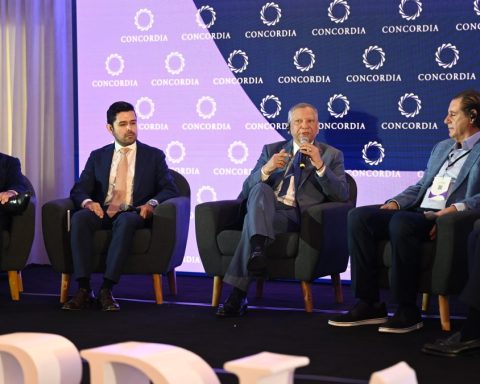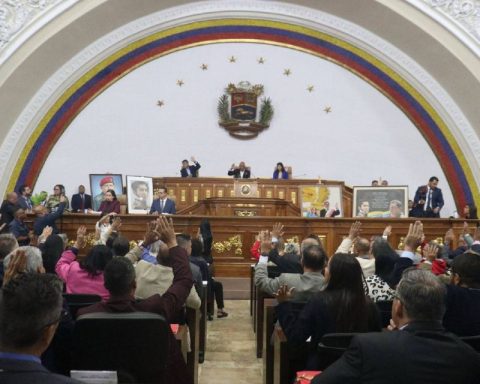A team of Argentine and Nicaraguan lawyers have launched a legal action unprecedented in Latin American history: to prosecute under international jurisdiction “criminals against humanity,” specifically dictators Daniel Ortega and Rosario Murillo, along with their main accomplices in the commission of these crimes against the people of Nicaragua. Although the Managua regime tries to ignore and disregard international justice, a human rights and criminal law expert who filed the complaint maintains that Argentina has the power to prosecute Nicaraguan tyrants and details the accusation.
Darío Richarte, an Argentine jurist, expert in criminal law and human rights and professor at the University of Buenos Aires, Argentina, is the one who is promoting the accusation before the Justice of his country against Ortega, Murillo and their accomplices and affirms, in a recently made public analysis, that the federal judicial system of the Argentine Republic can investigate and prosecute the Nicaraguan tyrants “based on the principle of universal jurisdiction.”
Richarte argues that “since April 18, 2018, the Government of the Republic of Nicaragua, led by Daniel Ortega and Rosario Murillo, has been carrying out actions that constitute crimes against humanity, such as murders, imprisonments, forced disappearances of persons, torture, forced transfer of population, persecution of political, ethnic and religious groups, within the framework of a widespread and systematic attack against the civilian population.”
And taking into account that the principle of universal jurisdiction “enables any jurisdiction of any State to investigate and judge acts that have been committed outside the territory of that State,” two years ago they began actions aimed at prosecuting Ortega, Murillo and their accomplices for crimes against humanity.
This is the lawsuit against the dictators of Nicaragua
Richarte explains that the complaint aimed at prosecuting under international jurisdiction the tyrants of Nicaragua and the main accomplices who execute their criminal orders at the head of their repressive forces began on August 26, 2022, when they filed a complaint before the Federal Courts of the City of Buenos Aires “against the President of Nicaragua, José Daniel Ortega Saavedra and Vice President Rosario María Murillo Zambrana.”
The complaint includes “each of those responsible for the state, police, military and paramilitary structure, for crimes against humanity, perpetrated through the following acts: murder, imprisonment, serious deprivation of liberty, forced disappearance of persons, torture, deportation or forced transfer of population and persecution of a group or collectivity with its own identity based on political or religious motives.”
The accusatory document describes the social and political context that Nicaragua has been experiencing since April 2018 and identifies the stages that make up the “criminal plan of repression.”
Related news: Argentine justice system investigates Ortega and nine of his officials for crimes against humanity
The filing of the complaint, the jurist explains, enables the jurisdiction of the Argentine federal court based on the principle of “universal jurisdiction”, which was shared by Prosecutor Eduardo Taiano and resolved by Judge Ariel Lijo.
The report also includes testimonies from a number of direct and indirect victims, whose identities are being withheld to ensure their safety.
“Furthermore, reports and publications prepared by institutions belonging to the international community were incorporated, along with newspaper articles from various media outlets, which constitute valuable documentary evidence of the crimes against humanity referred to,” describes the international law expert.
Seven extensions to the initial complaint
On November 15, 2022, the team of lawyers in charge of promoting the lawsuit against the Nicaraguan dictators presented a first extension of the complaint, requesting the investigation of three circumstances: “the responsibility of the Director of the National Police during the repressions of April 2018 (Aminta Granera, dismissed by Ortega), the violation of the right to education and the imprisonment of political opponents.
Likewise, on February 14, 2023, a second extension of the complaint was filed, related to the complicity of the Nicaraguan Judiciary in legitimizing the systematic policy of repression and the deportation of political opponents.
The entire Nicaraguan judicial apparatus has become an accomplice of the dictators by carrying out their orders to prosecute and condemn, denationalize, exile and confiscate in spurious proceedings, hundreds of opponents, under alleged crimes “prefabricated” by the Public Ministry, totally at the service of the regime.
On March 21, 2023, a third extension of the complaint was filed, identifying circumstances to which a new victim was subjected along with his family (identity withheld), events that culminated in their forced displacement and exile to Costa Rica.
On May 8, 2023, a fourth extension of the complaint was filed, relating to a series of crimes committed against freedom of expression, “particularly targeting the closure and cancellation of mass media outlets and NGOs that openly reject the regime, in addition to the persecution of media workers, activists and political opponents.”
Related news: Argentina’s investigation could lead to “criminal prosecution” of the Nicaraguan regime
In a fifth extension of the complaint, filed on October 20, 2023, the complaining lawyers describe “the systematic and widespread attack by the dictatorship, directed against the indigenous and Afro-descendant population, through the commission of serious violations of the human rights of the native peoples, with the aim of eradicating not only their political participation, but also their existence as a group.”
This extension of the complaint refers to the electoral fraud perpetrated by the regime in the autonomous regions of the North and South Caribbean, as well as the substitution of legitimate local governments with people close to the ruling party, the closure of regional radio stations and persecution of indigenous leaders such as the kidnapping and forced disappearance of the Miskito deputies and top leaders of the Yatama indigenous party, Brooklyn Rivera and Nancy Henriquez.
On November 1, 2023, a sixth extension was presented, which is limited to denouncing the situation of “headlessness” to which the CSJ has been subjected, after the eviction, dismissal and imprisonment of judicial officials, including the president of that branch of the State, Alba Luz Ramos, and other magistrates, judges and officials at all levels in the midst of a purge that, according to analysts, is being carried out to completely subordinate that state power to Rosario Murillo.
On February 2, 2024, a seventh extension was presented, which revealed the “intentional and organized” migration that flows from and through Nicaragua, putting the human rights of thousands of migrants at risk and exposing them to international organized crime gangs involved in illegal human trafficking. This extension accuses dictators of taking advantage of migration “as a tool to finance the regime.”
The challenges facing the process.
The specialist points out that it has become necessary to promote the process from another state due to the “lack of judicial independence in Nicaragua, given that the Nicaraguan judicial system lacks independence, which complicates the implementation of internal justice and cooperation with international investigations.” In addition, because of “the complicity of the Judiciary in legitimizing systematic repression.”
Another challenge facing the whistleblowers is that the Ortega regime has shown “reluctance to cooperate with international organizations and has rejected resolutions and recommendations from entities such as the UN and the OAS.”
The jurist also points out that the guarantee of security and confidentiality of witnesses and victims in Nicaragua is non-existent since “they can be persecuted by the regime if they collaborate with international investigations.”
Related news: These are the 16 Ortega officials who will be investigated for crimes against humanity
In this regard, Richarte recommends strengthening Universal Jurisdiction and promoting the adoption of similar measures in other countries and collaborating with prosecutors and judges in jurisdictions that accept this principle.
It calls for promoting cooperation with international organizations such as the International Criminal Court (ICC), the UN, and the OAS “to consolidate efforts and resources. Establish joint investigative commissions and share information and evidence.”
“The events that were committed (and are being committed) in the Republic of Nicaragua constitute Crimes Against Humanity and, as such, are part of those that violate the ‘right of the people’. For this reason, the Argentine National Constitution allows for their investigation,” says Richarte.
The UN Group of Experts on Human Rights in Nicaragua (GHREN), in its two recent reports, has indicated that atrocious crimes have been committed against the population of Nicaragua and against the right to practice faith, which may constitute crimes against humanity, and identifies dictator Daniel Ortega and his wife, vice-dictator Rosario Murillo, as the main perpetrators.
